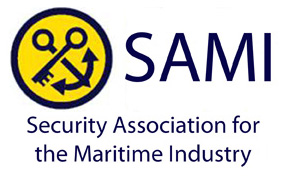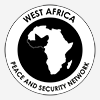 By Peter Cook, director of SAMI. The use of Private Maritime Security Companies (PMSC) and their Privately Contracted Armed Security Personnel (PCASP) in the High Risk Area (HRA) of the North-West Indian Ocean has proved extremely successful; some say it was the “game changer” for the HRA, resulting in no commercial ship having been successfully hijacked by pirates in the HRA since May 2012. But could the same or a similar private maritime security model work in the Gulf of Guinea (GoG) and if not is there any way that private maritime security can work off the coast of West Africa?
By Peter Cook, director of SAMI. The use of Private Maritime Security Companies (PMSC) and their Privately Contracted Armed Security Personnel (PCASP) in the High Risk Area (HRA) of the North-West Indian Ocean has proved extremely successful; some say it was the “game changer” for the HRA, resulting in no commercial ship having been successfully hijacked by pirates in the HRA since May 2012. But could the same or a similar private maritime security model work in the Gulf of Guinea (GoG) and if not is there any way that private maritime security can work off the coast of West Africa?
Nigeria is the cornerstone of the GoG geographically, culturally and economically; it is also the most populace country in the continent. Nigeria is at the epicentre of illegal activities on the water in GoG and is therefore the focal point for the international community as the key to maritime crime in the region.
The fundamental difference between the two hotspots is that in the HRA ships are attacked on the High Seas, whereas in the GoG ships are attacked in the territorial waters (TTW) of the coastal States. Anything that happens within TTW is under the jurisdiction of the adjacent coastal State, whereas on the High Seas the coastal States have no jurisdictional influence.
In the HRA, the reporting procedures for commercial ships entering is established, straight forward, familiar and to a single reporting centre that cover 2 million square miles. The incentive for the Master of a ship to report is, a cry for help because of a piracy attack, will probably result in the navy coming to your aid. Whereas in the GoG it is a very different picture, there are multiple reporting centres covering relatively small segments of the coastline all using different reporting procedures. The reporting centres rarely communicate with each other and they lack the naval resources to help vessels under attack.
A ship owners and ship operators primary objective is to discharge and load cargo in port as quickly, safely and securely as possible. Understandably they look at the HRA model and the strong relationships they have established with their PMSC service providers and many expect a similar arrangement to work in GoG.
However, the GoG coastal States are not willing to tolerate the use of PCASP from third party countries in the same way they are used in the HRA.
The PMSCs that have built up a good client base in the HRA have been caught in the middle; the legal requirements of the coastal States of the GoG are very different but their longstanding clients (ship owners and operators) are expecting a solution that is familiar, easy and cost effective. Consequently the non-Nigerian PMSCs who are not used to working in West Africa looked for quick fix solutions that are fraught with logistical and legal challenges.
Nigeria has however formulated a private maritime security solution of its own and some other coastal States are developing similar concepts. The Chief of the Naval Staff (CNS) of the Nigerian Navy (NN) designed a plan that was based on a Memorandum of Understanding to allow Nigerian PMSCs (many of which have Joint Ventures or other similar arrangements with third party PMSCs) to provide the NN with vessels which would be crewed, flagged and armed by the NN; they use Nigerian national Rules of Engagement and conduct escort vessel operations coordinated by the PMSCs for commercial ships visiting Nigerian ports[1]. Nigerian PMSCs have also established very effective Safe Anchorage Areas designed for ships waiting to enter ports with armed protection. These are expensive operations to establish that require significant capital investment by PMSCs.
The GoG private security model is very different to the one used in the HRA, but it is effective as no commercial ship being protected within these arrangements have been successfully attacked. The Nigerian PMSCs are providing a good service to those who are willing to pay for it.
[1] A detailed article about this can be found at http://www.seasecurity.org/theBridge/

2 thoughts on “Will a private maritime security model work in the Gulf of Guinea?”